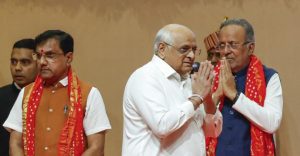On May 27, 2025, Prime Minister Narendra Modi reignited a long-standing historical debate by claiming that Sardar Vallabhbhai Patel disagreed with then Prime Minister Jawaharlal Nehru on how the Kashmir issue was handled in 1947. Speaking during a public event in Gujarat, Modi suggested that the foundations of today’s Kashmir conflict were laid due to the Nehru-led Congress government’s decisions at the time—decisions, he implied, that went against Patel’s advice.
According to Modi, Patel, then India’s Home Minister and key figure in uniting the princely states, had a different vision for how to deal with Pakistan-occupied Kashmir (PoK). Modi suggested that had Patel been in charge of Kashmir, India’s stance on the region may have been much firmer, potentially avoiding decades of conflict.
Contrasting Visions for Kashmir
Historical documentation supports the idea that Patel and Nehru approached the Kashmir issue differently. Nehru was more diplomatic and sought international mediation, while Patel leaned toward a more aggressive, military-based resolution. Former Indian Air Marshal Thomas Elmhirst is known to have recalled Patel advocating for an all-out war with Pakistan over Kashmir. Patel reportedly said it would be better to settle the matter once and for all through war, rather than let the issue drag on indefinitely.
The Accession Crisis and Its Fallout
The Kashmir crisis began in October 1947, when tribal militias from Pakistan invaded the princely state of Jammu and Kashmir. In response, Maharaja Hari Singh signed the Instrument of Accession, formally joining India. Following this, Indian troops were deployed to defend the region.
However, Nehru’s decision to take the issue to the United Nations led to a ceasefire and the eventual partition of Kashmir, which has remained a contentious matter between India and Pakistan. The ceasefire line, later known as the Line of Control, effectively divided the region into Indian-administered and Pakistani-administered areas—a situation that persists to this day.
Political Response and Academic Perspectives
Modi’s remarks have triggered a wave of political reactions, particularly from the Congress party, which accused him of distorting history for political purposes. Congress leaders argued that Nehru acted based on the complex geopolitical realities of the time and dismissed the suggestion that Patel’s approach would have necessarily led to a better outcome.
Historians remain divided on the issue. Some records indicate that Patel was open to the idea of letting Kashmir join Pakistan in exchange for Hyderabad, a Muslim-majority state that was reluctant to join India. However, that proposal was never formally pursued, and Pakistan rejected similar negotiations.
This complex interplay of political maneuvering, military strategy, and international diplomacy continues to be debated by scholars and politicians alike.
The Legacy of a National Dilemma
Modi’s comments have reopened a historical fault line that has shaped India’s internal and external policies for decades. While Nehru’s measured approach was shaped by his vision of a secular and democratic India engaged with the global order, Patel’s preference for strong, decisive action reflected his focus on national unity and internal security.
These differing philosophies played out in many aspects of early Indian governance, but perhaps none more dramatically than in the handling of Kashmir. Modi’s statement serves as a reminder that the decisions made in those early years continue to influence India’s geopolitical landscape.
As the country reflects on its history, the debate over Kashmir and the contrasting roles of Nehru and Patel is likely to remain a subject of national interest and political discourse.





More Stories
Stranded Before the Festival: Air India Flight Cancellation Leaves Dozens in Milan Without a Way Home for Deepavali
Massive Gujarat Cabinet Overhaul: Harsh Sanghavi Promoted, Rivaba Jadeja Makes Political Debut
India Rejects Trump’s Statement on Russian Oil, Reaffirms Energy Sovereignty